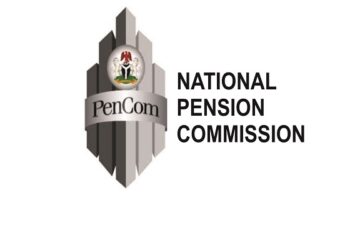The Nigeria Deposit Insurance Corporation (NDIC) had recently announced that it will soon commence the disbursement of additional payment to the depositors, creditors and shareholders of 20 banks whose operating licenses had been revoked by the Central Bank of Nigeria between 1994 and 2018.
The payments which is an additional payment having concluded the initial payments to stakeholders, is coming at the heels of a N16.18 billion that had been recovered by the NDIC from debtors of the defunct banks. Before now, the NDIC had paid out N1.393 billion to 36,163 insured depositors.
This disbursement which was achieved in n a record three days follows the recent revocation of licenses of 110 Microfinance Banks and three Primary Mortgage Banks by the Central Bank of Nigeria (CBN).
According to the NDIC, payments of the statutory insured sums are still ongoing, and depositors with funds exceeding the insured limit are expected to receive liquidation dividends after the recovery of debts and the sale of the closed banks’ physical assets.
These disbursements show the significance of deposit insurance to financial stability and retention of confidence in the Nigerian banking system. While bank failures and cases of distressed bank is no longer as prevalent as it used to be, protection of depositors remains a crucial part of ensuring financial stability.
If depositors are not sure that they will be able to recover their funds in a case where a financial institution suddenly closes, there is a high probability that they would rather hold onto their funds than give it to a bank for safe keeping.
Providing this part of safety-net for depositors was the crux of creating deposit insurance institutions across the world. A Deposit Insurance Scheme (DIS) is a financial guarantee to depositors in the event of a bank failure.
Deposit insurance is a depositor protection scheme usually supported by insured institutions themselves and administered either through a government-controlled agency; a privately held one or one that is jointly owned and administered.
DIS are in existence with specific objective some of which include provision of deposit protection, contribution to financial stability, dealing with problem financial institutions, contributing to an orderly payments system, promoting competition in deposit-taking institutions, encouraging economic growth amongst others.
Deposit insurance schemes are different from conventional insurance. While a conventional insurance policy is designed only to protect the micro interest of the policyholder, a DIS is a regulatory tool aimed at ensuring the safety, soundness and stability of a nation’s financial system, thereby protecting the macro-economy at large.
Also, where the beneficiary, who is the insured, pays the premium under a conventional insurance, under a DIS, the insured institution pays the premium while the beneficiary of the protection offered is the depositor who does not pay any premium. While best practice indicates that participation in DIS be compulsory, it is a voluntary option under the conventional insurance.
In Nigeria, depositors’ funds are insured by the Nigeria Deposit Insurance Corporation (NDIC) which was established in 1988 through the promulgation of Decree No.22 of 15 of June 1988 as part of economic reform taken by the government to strengthen the safety-net for the banking sector.
The mandate of the NDIC includes the coverage of all deposit liabilities in Deposit Money Banks (DMBs, including Non-Interest Banks), Microfinance Banks (MFBs) and Primary Mortgage Banks (PMBs), Mobile Money Operators (MMOs).
The corporation is also saddled with the adoption of differential premium assessment system to encourage effective risk management system in banks as well as insurance coverage which guarantee payment of up to N500,000.00 and N200,000 to depositors of for DMBs/PMBs and MFBs respectively in the event of bank failure.
Asides these, it also implements the pass-through deposit insurance for the subscribers of mobile money operators (N500,000 Coverage per subscriber of MMOs). Alongside these, the NDIC also participates in other safety-net policies which include on-site examination and off-site surveillance of licensed deposit-taking financial institutions to ensure safety, soundness and stability of the banking system.
It also Risk-Based Supervision in collaboration with the CBN to ensure effective risk management in banks and promote stability and ensures zero tolerance for unethical practices in insured financial institutions in the interest of depositors thereby promoting safe and sound banking practices.
According to Section 10 (1) of the NDIC Act No. 16, 2006, funding sources of the corporation include premium contribution by participating institutions, income from the investment of the Corporation, monies borrowing from any sources with the approval of the Board and monies from any other sources as may be approved by the Corporation.
As contained in Section 17 (5) of the NDIC Act No. 16, 2006. If supplementary funding is required, NDIC has the authority to ask participating institutions to pay special contribution out of it profit before tax, a sum equal to its annual premium or such other sum as the Board may require not exceeding 200 percent of its annual premium on such terms and conditions as the Board may from time to time determine.





